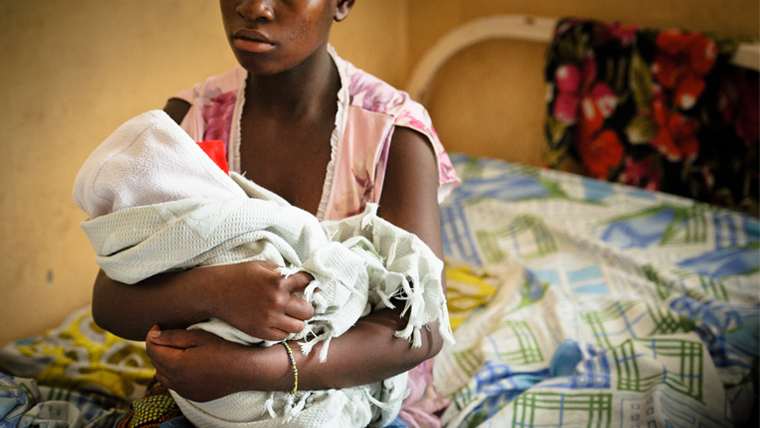Time To Act: Ending Sexual Violence In Conflict
On the eve of the Global Summit to End Sexual Violence in Conflict, our senior child rights policy advisor, Erica, shares her personal experiences that highlight just how important the summit is for everyone involved.

By Erica Hall, Senior Child Rights Policy Adviser, World Vision UK
Next week, London will play host to the largest ever gathering of government ministers, donors, UN agencies and activists coming together to end sexual violence in conflict.
Some may ask why, with so many terrible things happening in the world, this summit and its outcomes are so important? I can only answer this from my own perspective, from what I have seen and what I have heard in the past 15 years, from when I made the decision to change my career path and re-train as a lawyer, studying international criminal and human rights law, to now, working for World Vision.
I have watched women in Bosnia struggling to rebuild their lives after being kept in rape camps and not able to get justice.
More recently, I have met girls in Rwanda, who left home as teenagers when they found out that they were the product of rape – that their fathers were genocidaires. In a continual cycle of violence, many of these girls – vulnerable and on their own at too young an age – had become victims of sexual violence themselves.
I met a boy in Uganda, who was born in the ‘bush’, the child of a girl who had been abducted by the LRA. He watched as his mother was killed in front of him and eventually escaped back to his mother’s home – to a grandmother he had never met and a community he did not know. A community that did not welcome him. And I listened as he explained his difficulties concentrating in school – the effect of being shot in the head by a man in the community who did not think he should exist.
I have listened to girls in eastern DRC tell me they do not go to school, not because the schools aren’t there or aren’t good enough, but because they are afraid of being raped on the way there.
The summit is the next step in Foreign Minister William Hague’s two-year-old initiative – which has already seen phenomenal political declarations of commitment and now needs to build the momentum of action so that real change is seen on the ground in countries facing conflict or grappling with the aftermath of conflict.
Included amongst the 1,200 delegates expected at the summit are survivors and young people who offer their own unique perspective and passion for real change. I hope their voices will be central to the discussions. They are our conscience and our hope for the future and I know they have a lot to say.
Action now
Survivors of sexual violence and those who live in daily fear of it need action now.
By bringing together those who have the power to create change and those who have the expertise to show how that change can happen, the summit is a unique opportunity to develop a global programme of action that will end impunity for perpetrators of sexual violence; signify a mind shift that says sexual violence is not a ‘normal’ part of war and is not acceptable in the world today; support survivors to make their own journey of recovery; and ensure children in conflict affected countries grow up free from the fear of sexual violence.
So why now? Because it is time. Time that the world says sexual violence in conflict is not acceptable. Time that survivors have a voice and the power to change the way they are treated. Time for every child to live free from fear of sexual violence.
The summit, at the ExCel centre in London, includes three three days of free public events from 10th-12th June. Visit the summit page to join us and see real change in action.